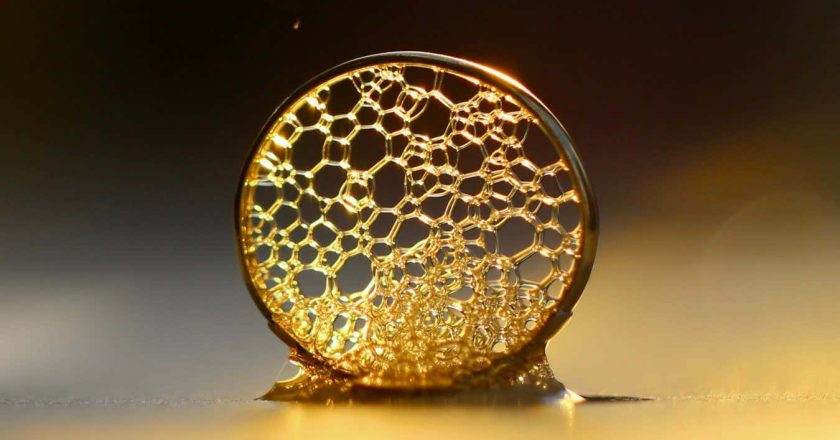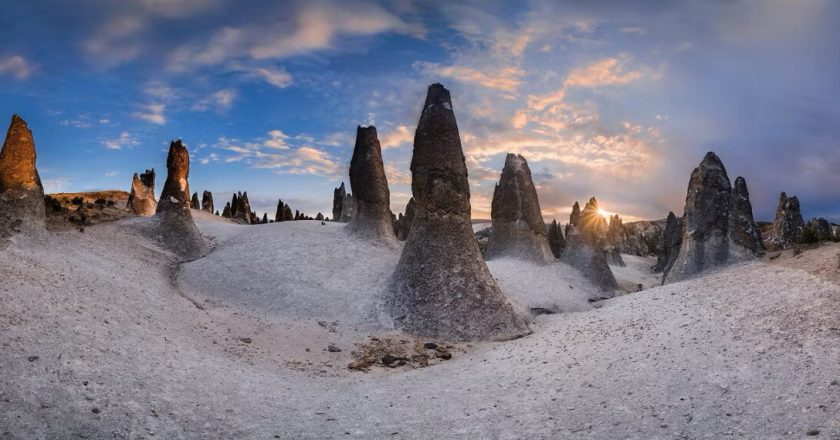Photography contest spotlights the beauty of science in vivid detail
Optical fibre connected to a dilution refrigeratorHarsh Rathee/Department of Physics
Photographs accompanying most scientific papers might politely be called “functional”. But this collection of images from Imperial College London’s research photography competition proves that research can be beautiful.
The top image, by Harsh Rathee of the physics department, shows an optical fibre connected to a dilution refrigerator, a device that creates a temperature a thousandth that of the vacuum of space. By observing how light interacts with sound waves at this incredibly low temperature, researchers can explore the unique properties of matter at the quantum level.
Liquid GoldAnna Curran/Department of Mathematics
The above entry is from Anna Curran of the maths department, wh...




